The article you’re reading comes from our archive. Please keep in mind that it might not fully reflect current views or trends.
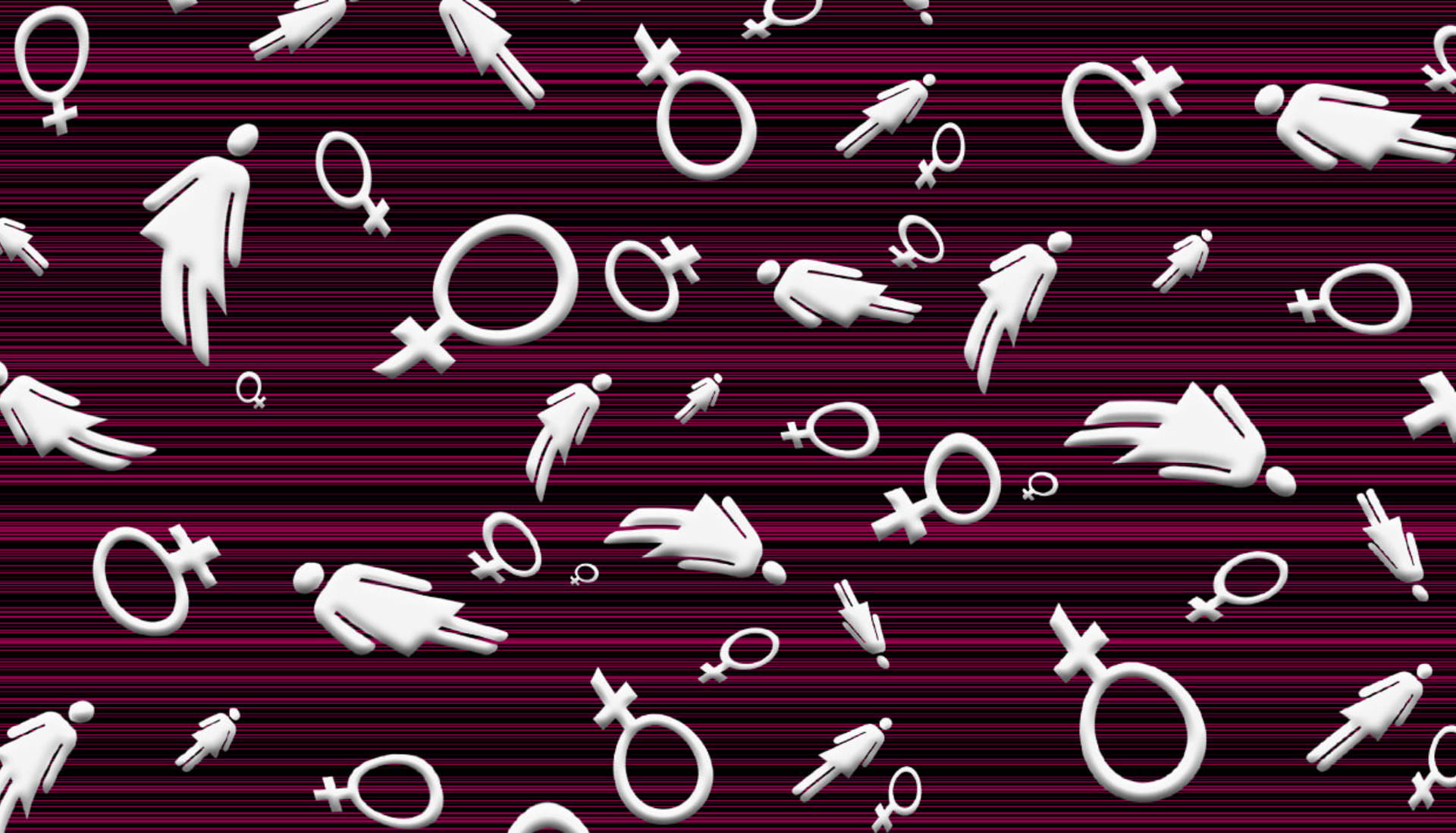
Do All-Female Lineups Really Help Women In Electronic Music?
My friends and I formed our all-female DJ collective, Apeiron Crew, a couple of years ago, when we were all floating around in our own corners of Copenhagen’s underground party scene. Having female companionship in nightlife turned out to be a lot more rewarding than any of us had anticipated, both in terms of how we developed as DJs by bouncing records and mixing techniques off one another and personally, as those women are now some of my closest friends.
Earlier this year the all-girl techno collective SIREN invited us to play in London. We were each scheduled for the perfect time slot that corresponded with our style of music, and as a result, the energy of the night flowed perfectly and the crowd was attentive. We all went home with an unquestionable sense of empowerment because we were proud to be part of a lineup of eight women who had just completely smashed it.
But not all promoters have the same nuance when it comes to compiling a lineup comprised only of women. Despite the positive experiences I’ve had playing with Apeiron, I’m hesitant to say yes to participating in all-female lineups when I’m DJing on my own as Courtesy because I’m skeptical of how they’re used as a tool to “empower” women in electronic music. Like the women I talked to for this piece, I’ve been asked to play on all-female lineups where I obviously don’t belong because the promoter got tunnel vision on booking women for any price. It’s made me wonder: in a time where there’s so much focus on supporting women in electronic music, how much are all-female lineups really furthering the cause? For guidance on the issue, I turned to my colleagues—other women in the industry who produce and/or DJ—to ask them about their thoughts and experiences with all-female bills.
The SIREN Female DJ Collective
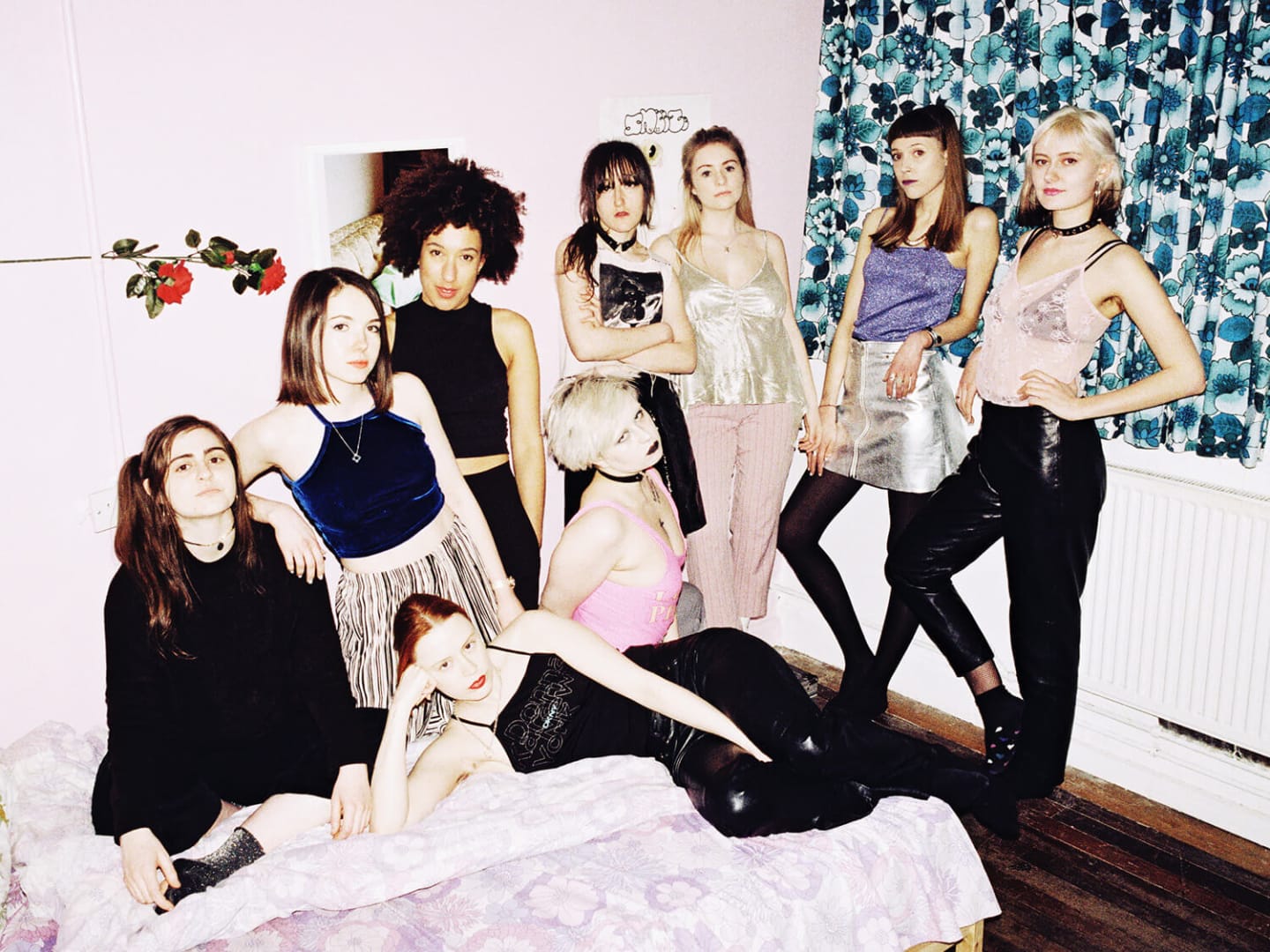
We started our all-women crew, SIREN, in response to the frustrating underrepresentation of women in London’s club scene. We’re fed up with seeing all-male (and mostly all-white) lineups and the excuse that “there aren’t enough women who DJ.” Obviously, 50-50 lineups are great, but we have so much work to do before we get to that stage, so we book all-women lineups to address the imbalance directly. We’re interested in creating a space where female-identifying and queer people don’t feel as marginalized as they do in other techno spaces. Nights in London are particularly bad; at most techno parties it’s easy to find yourself in a sea of identical white men.
We think it’s pretty important that organizers of all-female events are also women. If a man promotes an event with a specifically all-woman lineup, it can come across like they’re cashing in on feminism because it’s “trendy.” A man in the scene can just pick up the issue and put it down again when they’re no longer interested. They don’t have to experience the objectification, patronization and erasure that women are subject to. The distinction is that we’re carving out a space for ourselves, as opposed to a male promoter offering someone more marginalized a temporary use of their space and then gaining whatever promotional value that comes with it.
So if you are a male promoter and you want to book an all-female lineup, just do it. Don’t make a thing about it or market it as a one-off special event; instead, just consistently book women at your parties and as headliners. Otherwise there’s a danger of just using the cool cache of feminism or its political urgency to benefit your own night without helping in the long run. For instance, there’s a club in London that has a “girls behind the decks night”—on Mondays. It’s great that they’re giving women a platform, but then again, it’s a night when no one goes out. If you care so much about women, put them on during prime-time instead of just a practice slot that no one will go to.
We’re also finding that a lot more people want to book SIREN as opposed to us as individual DJs or women who are musically appropriate for their night. For instance, a UK bass night got in touch to suggest a collab, but the DJs in SIREN play techno. We don’t know shit about MCing, but there are women who do. Booking SIREN once does not solve the problem; instead, book three or four female headliners over a range of events. We appreciate the enthusiasm people have for what we’re doing, but they don’t seem to realize that they don’t need to book us to help us achieve that. Go out there and book women and non-binary DJs you love whose music is suited to your night. That goes far further in helping to change the scene.
Photo by Francesca Allen.
Pan Daijing (Noisekölln Tapes)
Some promoters have made me feel like they wanted to book me because of my gender rather than my work, and I won’t do those gigs. I’m very supportive of female artists, but I don’t think their gender is important unless their work is specifically about it. I don’t think it’s proper to put your gender in front of your work; I think it’s better when people hear or see something they’re excited about, and then afterwards they find out it was made by a woman. Since I moved to Berlin, I’ve met people who do events and ask me to play in an almost disrespectful way: they send me a random message on SoundCloud saying, “Do you want to play this thing with xxx girls?” When I check the other women playing, it completely doesn’t make sense to put us together. So I just say no.
Photo via I-D.
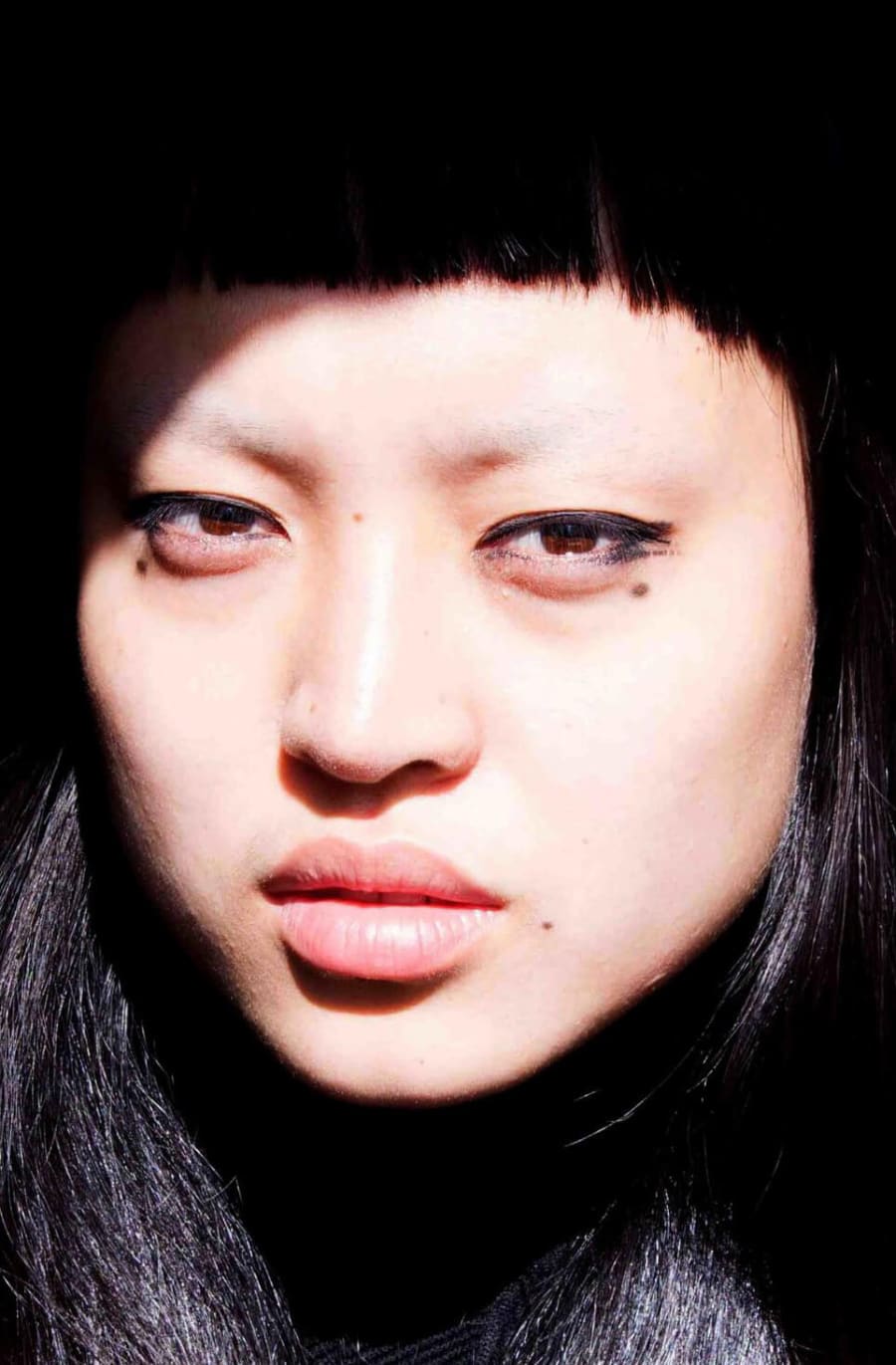

Fatima Al Qadiri (Hyperdub, UNO, Fade To Mind)
If you haven’t experienced wide-ranging sex segregation in your country, it’s difficult to appreciate how dreary and stifling it can feel. I grew up almost exclusively around girls and women because of official and unofficial sex segregation in Kuwait. There are countless instances of spaces that are fully sex-segregated. It made me crave the company of males, and I would be lying if I didn’t admit that. It took years to shake that feeling off.
I genuinely don’t recall playing an all-female lineup. I did see Venus X and Asmara (aka Asma Maroof of Nguzunguzu) play a five-hour back-to-back set recently, and it was one of the best DJ sets I’ve ever witnessed in my life. It empowered the whole damn room! It’s chemistry between people at the end of the day. So although I see potential benefits for a club space of having an all-female lineup—especially if the entire lineup has awesome chemistry—I also feel there’s a missing dimension in this conversation: intersectionality. Being female is not enough to champion by itself. I always think there aren’t enough women of color and queer artists who are given top billing in lineups. To be blunt, I want an all-inclusive lineup with all the cute freak mothers and daughters onstage.
Photo by Dom Smith. Fatima Al Quadiri’s new album, Brute, is out now on Hyperdub.
Zoe Rasch, Co-Founder Of Booking/Promotion/Activist Agency Mint
We’re constantly working on the concept of Mint, so we leave both our booking agency and club nights open to changes. We used to do events with exclusively female-identifying artists on the bill, but at one point we decided that lineups don’t have to be 100 percent female in order to support female artists. So Mint is not women-only; it’s about supporting women, and our main focus will always be on female acts. But we’re also connected to male DJs, and we support a network that does include men. There are a lot of male feminists out there who love and support the idea behind Mint, and that’s what we display in our lineups.
In order to make a concept that successfully supports women, you need proper promotion that presents the artist’s sound above all else, and you need to pay them proper fees so that they can manage to live off what they do and don’t lose energy to other jobs. I would welcome a concept that supports female DJs year-round. If a booker or promoter decides to do an all-female lineup, I suggest getting to know the new DJs and to support newcomers. And provide proper equipment so they can really show what they can do.
Photo by Pernille Sandberg.
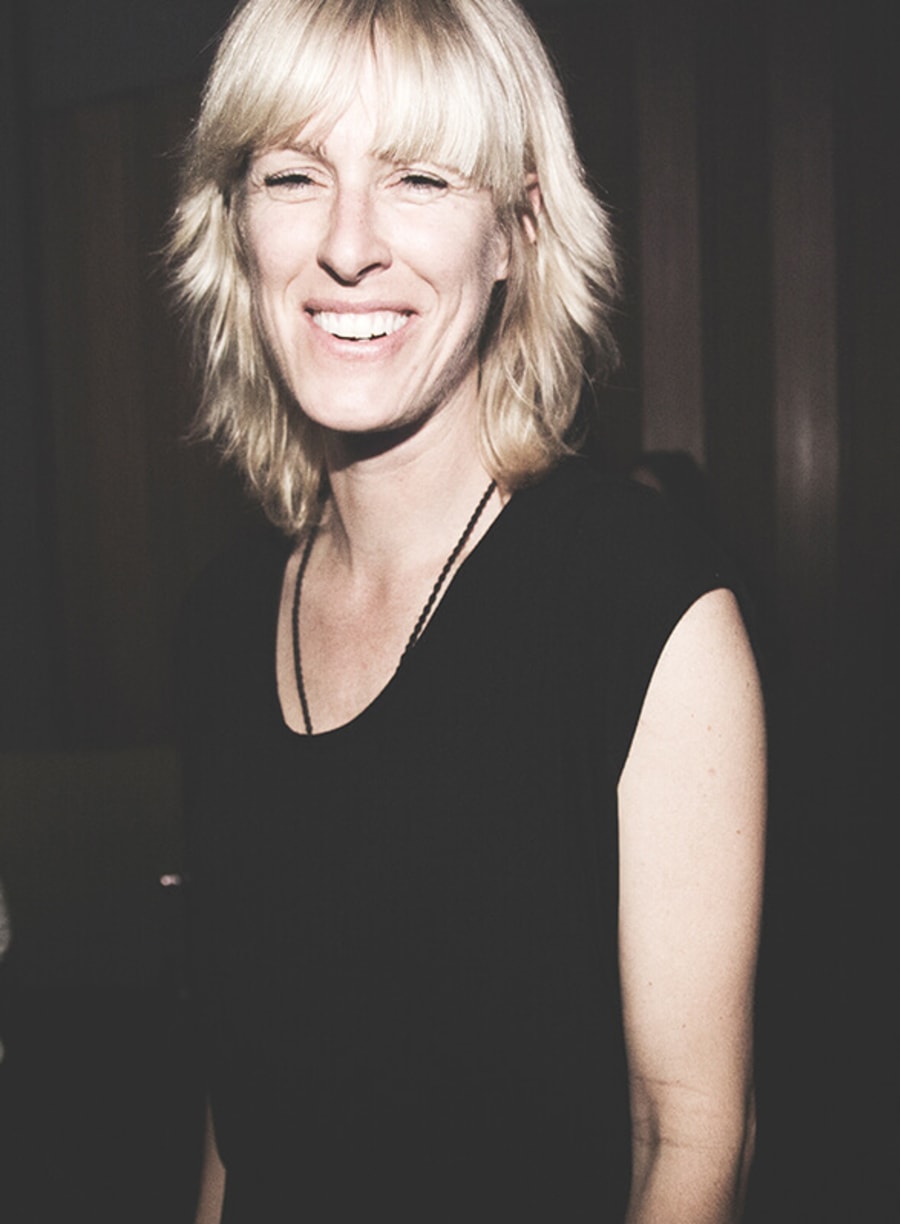

Klara Lewis (Editions Mego, SHAPE)
When I play shows, I’m often both the youngest and also the only female on the lineup, which is quite strange. When I was first asked if I’d played many all-female lineups I could only think of one, but after some thought it hit me that I’ve actually played quite a few. I think that’s what’s been special about them—they didn’t make a big deal that there were female acts. When I look back at them I don’t think of them as all-female, that’s not what defined them, they were simply great lineups.
A lot of festivals have all-male lineups, and most people hardly seem to notice. In an ideal world we wouldn’t have to discuss gender when it comes to bookings but in the current situation there’s a point in clearly saying, “Okay, this is going to be an all-female lineup, and we’re promoting female acts.” It’s a way of showing people that there are a lot of great female acts in the electronic scene. I’ve heard that it’s common for promoters to defend their choice to only book men by saying that there aren’t any good female acts, and that they only book things that they like. I guess putting on an all-female lineup is a way to show people that that simply isn’t true. It’s also a great way for female artists to meet each other. It’s important to understand that you’re not alone in this.
Photo by Hampus Högberg.
Jenifa Mayanja, Founder of Bu-Mako And Sound Warrior Recordings
The promoters who put together the all or primarily female-led events that I’ve played had a reputation for really good events, so if women were picked to be on a bill, they all had really good reputations for being amazing selectors with a lot of skill and experience. I think most people who are into the music and culture—meaning they don’t just go out to get wasted; they pay attention to the music (which is how a DJ got a following in the old days)—can tell when a lineup has been put together for non-artistic reasons. I think that applies to all lineups, all-female or not. So I think it’s an extremely positive thing when an all-female lineup is put together with the ingredients I mentioned above, because that adds to the potency of the events. And that’s how to break down the perception that all-female lineups are tokenism, silly, reverse sexist or unnecessary.
I just played an excellent underground party in Brooklyn called Sublimate that had primarily women on the bill; I played back-to-back with Jane Fitz and my Sound Warrior Records label partner, Dakini9, for six hours. Everything I just talked about—the skill, talent and experience of the selectors—was in full force, and as a result, the energy and impact were undeniable. Myself and the other two ladies I just mentioned have been DJing for well over 20 years each, so we know what we’re doing in terms of building a vibe and energy, and when we left, everyone including ourselves were all on a high because we traveled a beautiful journey together. But it also feels good from the standpoint of being a woman and working with other women on the same level as you to make something that people are going to be talking about well beyond that one night. It’s going to have an impact on the people who were there well after the event, and that’s empowering. Hopefully promoters and bookers will approach female lineups with respect for the artists and not based on superficial factors.

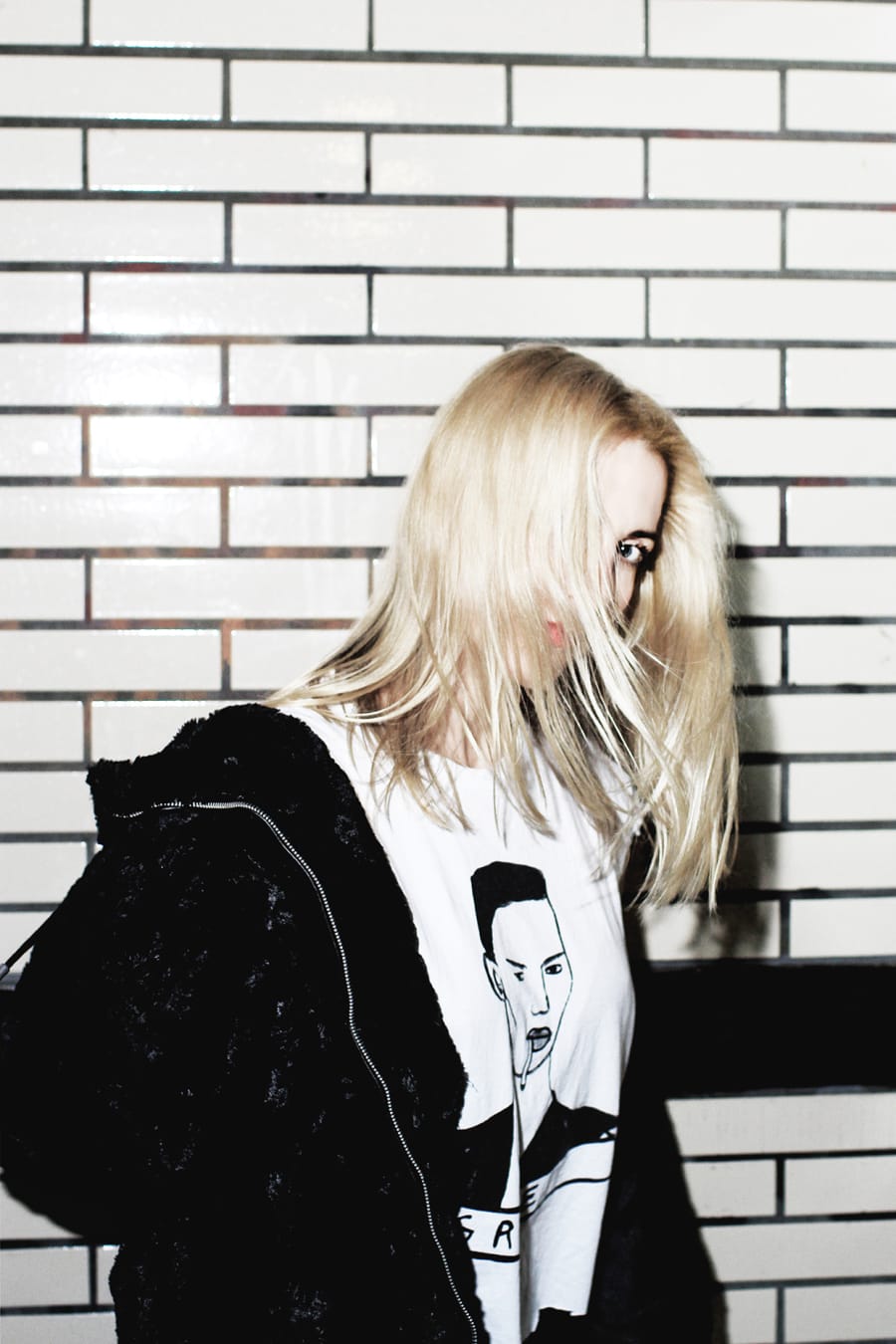
Ellen Allien, Founder of B-Pitch Control
I really like to book female DJs because it’s interesting for me to see what the others do. Of course, there are other advantages to booking women: for instance, female DJs bring more female customers because women love watching women play. They don’t need to look at some guy they think is sexy. It’s about seeing a female hero and being a fan of women. I’m a big fan of Miss Kittin, Helena Hauff, Nina Kraviz and all these really strong women who’ve done a lot for the scene.
For me, it’s important to make a lineup that fits musically. I always try to book female DJs, but most of them are often booked out, so it’s not easy to bring together an all-female lineup that’s musically coherent. I don’t want the music to change from act to act; I want to create a journey so that people don’t leave the floor when a new DJ comes on. If people are tripping and then the music changes and becomes really hard, they’ll probably have to leave the room to digest. So from a promoter’s perspective, you have to research what kind of music the DJ you’re booking plays so that it’s right for the moment.
But when we’ve tried to make all-female DJ bookings in the past, we’ve found that some don’t want to play on such a lineup. I think that’s because they don’t like the promotion that happens around an event where only females play together, maybe because some promoters use that to sell the event in a cheesy way. However, I think that’s mostly in the past now—people used to promote events with “all these sexy women together!” And that’s when it’s sexism and not about the music.
Photo by Lisa Wassmann.
Tijana T, Belgrade DJ
Instead of asking the question, “What makes an all-female lineup good over one that isn’t,” we could ask, “What makes an all-male lineup good over one that isn’t?” Nobody ever thinks about that. What connects men who play together at the same party? It’s either that they have similar musical interests or perhaps they release on the same label or they’re connected to people in the same cliques. Maybe they’re just buddies and they like to play together. I think the same rules apply to women, and that should be the end of the discussion.
If a girl plays similar music to me, or if I think I’d be a perfect introduction to her set or vice versa, of course we’ll do a party together, and it’ll end up fantastic. But if you have a promoter whose intention is to make his party more marketable just because there’s an all-female lineup, then you can sense that, and it always comes out wrong; the girls don’t fit together or the advertising is wrong or they use the wrong venue. If there’s another reason to put that particular group of women together, then that’s fine. But if you just want to have all women on the lineup, and especially if you put them all on one stage with guys on another, then it’s more like, “And over here we have this curious case: girls playing records!” The only fair thing to do is to not treat women involved in electronic music as a spectacle. It’s a job like any other, and we all have the same ears and two hands; we’re all capable of using computers and turntables and CDJs.
Read Tijana T‘s guide to the Serbian underground in Belgrade here.
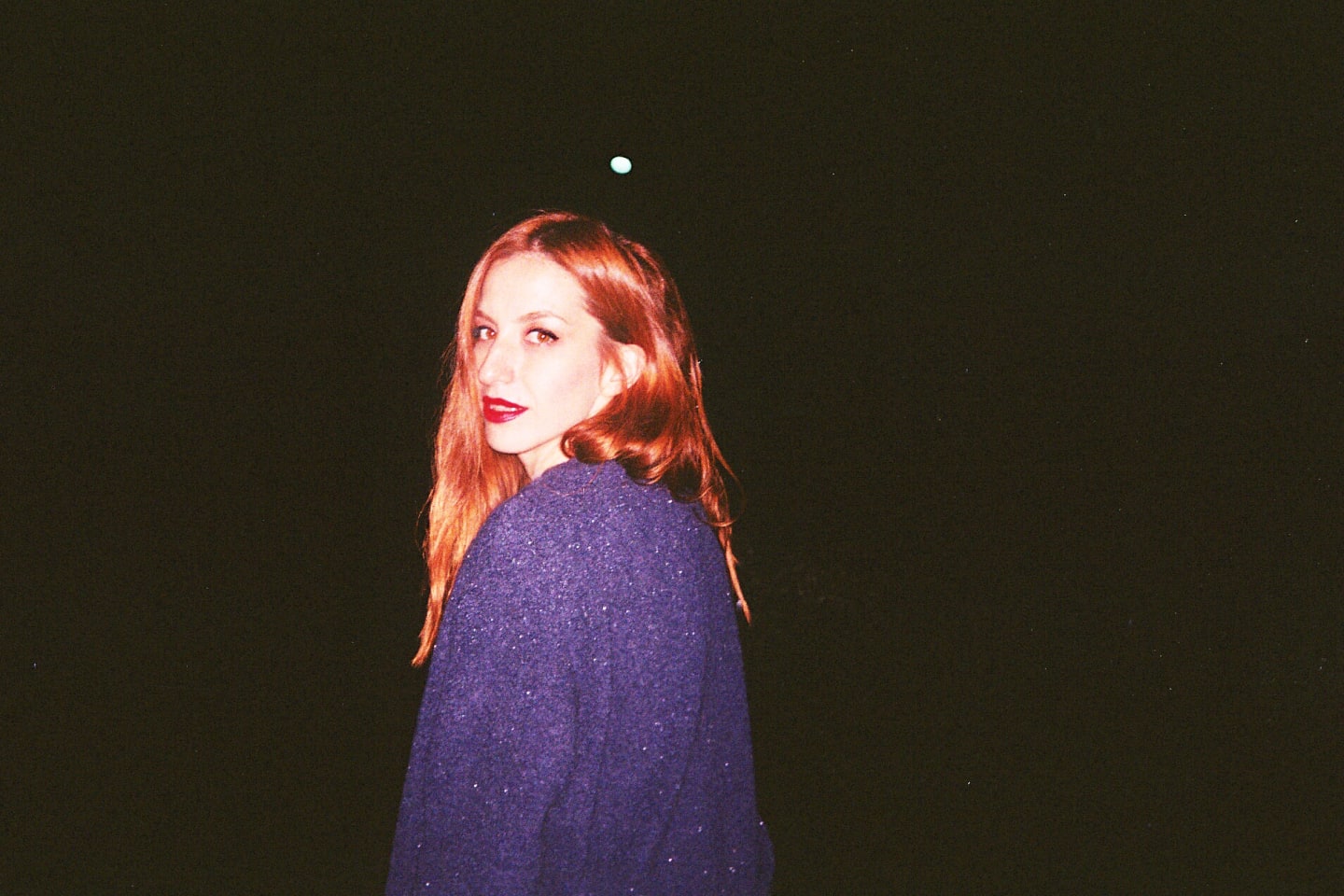
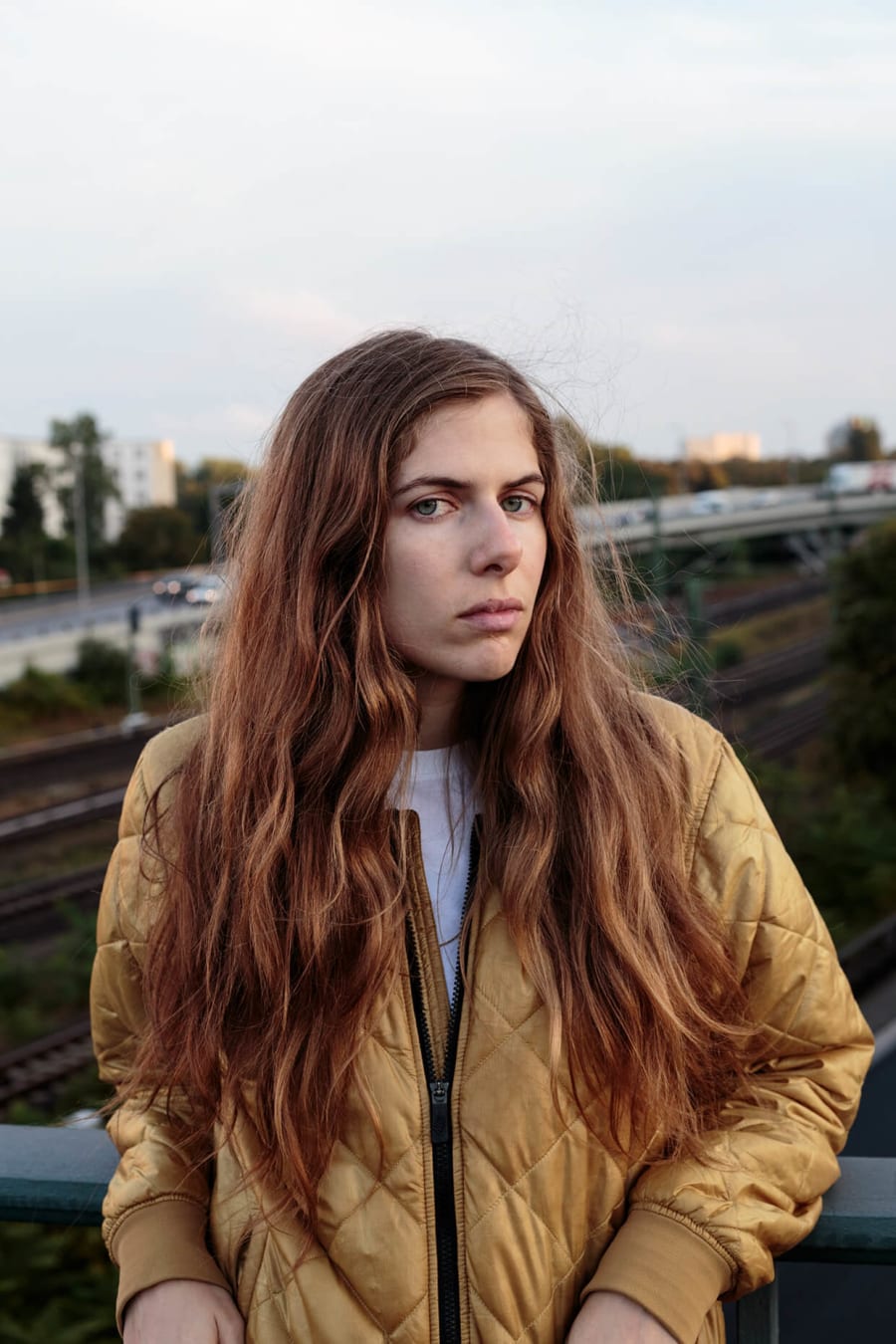
Laurel Halo (Hyperdub, Honest Jon’s)
Under which circumstances would you play an all-female lineup?
I’ll do it if I’m excited by the crew putting on the night or if I’m intrigued by the other artists on the bill. If I’m offered to play on a lineup that doesn’t make sense aesthetically, I will say no.
Do you have an example of playing or being asked to play on an unconstructive all-female lineup?
It typically only happens at festivals, and even then it’s rare because I think promoters have become more open-minded. But when it does happen, it’s usually because the lineups are announced last minute. I played a festival recently with two other female acts who also do hardware live sets, which was great, as I like and respect these artists. But the festival had male artists doing hardware live sets as well. How difficult would it be to have female and male hardware live sets on the same stage? Or why even group artists together based on the fact that they use hardware, or engage in specific variations of one genre? This lineup wasn’t unconstructive per se, but it did give pause, as it is a recurring theme. If you are a female artist booked at a festival, there’s a good chance you’ll be on the same stage as the other female artists.
A few years ago I teased a promoter about booking me and one other woman on the same stage, and he drunkenly insisted that all he wanted was to be “politically correct” and fill a quota. First off: it’s pathetic that booking female artists still means “politically correct” to some people. And second: don’t tell the artist you booked that she is just filling a quota to make your festival look better!
Why did those lineups seem unconstructive?
All-female lineups can be unconstructive because they potentially stagnate expectation. Why do promoters exercise so little creativity with their booking practices? Why not naturally expose the audience to more diversity on lineups? I understand that festivals face financial pressures and need to have acts of a certain size on certain stages, but beyond that I honestly don’t see the difficulty in getting a little deeper. And, as I suspect based on my interaction with the promoter described above, the all-female stage can make promoters feel like they’re making a difference when they aren’t, which allows the same tired discussion to continue: Why aren’t there more female electronic artists? Instead of dealing with the issue in a surface way, why not listen deeply to the music and think about where it could be best or freshly placed, regardless of gender? It’s certainly not an issue limited to all-female lineups, either. I hope that going forward we get more and more lineups of artists from a variety of backgrounds and scenes, linked more out of fresh stylistic choice than anything else.
Do you see potential strengths in the club space that an all-female lineup creates?
It can make for a more diverse crowd, which means a better party. I can’t tell you how many “crucial” or “respected” club nights I’ve been to where the audience is 95 percent male and not one female is on the lineup. When I go to parties where it’s all, a majority, or even just some women playing, the crowd is much different.
Is it important that the booker of an all-female lineup is also female?
I have a load of time and respect for both female and male promoters who want to actively create space for artists and who seek to effect broad empathic change within the music community by booking women. There are a lot of crews these days doing just this, and it is crucial. But I don’t have time for promoters—female or male—who group artists together out of a trivial desire to seem progressive. There’s a way of booking all-female lineups out of empathy, style and attitude rather than some misguided “celebration of female talent.”
Photo by Phillip Aumann.
